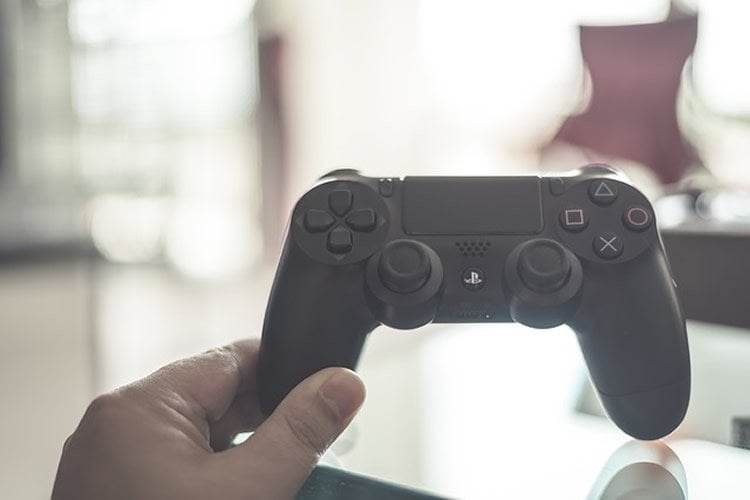Summary: People who play video games for more than 15 hours per week performed better in learning tasks and showed increased activity in brain areas associated with memory than non-gamers, a new study reports.
Source: RUB.
Neuropsychologists of the Ruhr-Universität Bochum let video gamers compete against non-gamers in a learning competition. During the test, the video gamers performed significantly better and showed an increased brain activity in the brain areas that are relevant for learning. Prof Dr Boris Suchan, Sabrina Schenk and Robert Lech report their findings in the journal Behavioural Brain Research.
The weather prediction task
The research team studied 17 volunteers who – according to their own statement – played action-based games on the computer or a console for more than 15 hours a week. The control group consisted of 17 volunteers who didn’t play video games on a regular basis. Both teams did the so-called weather prediction task, a well-established test to investigate the learning of probabilities. The researchers simultaneously recorded the brain activity of the participants via magnetic resonance imaging.
The participants were shown a combination of three cue cards with different symbols. They should estimate whether the card combination predicted sun or rain and got a feedback if their choice was right or wrong right away. The volunteers gradually learned, on the basis of the feedback, which card combination stands for which weather prediction. The combinations were thereby linked to higher or lower probabilities for sun and rain. After completing the task, the study participants filled out a questionnaire to sample their acquired knowledge about the cue card combinations.
Video gamers better with high uncertainties
The gamers were notably better in combining the cue cards with the weather predictions than the control group. They fared even better with cue card combinations that had a high uncertainty such as a combination that predicted 60 percent rain and 40 percent sunshine.

The analysis of the questionnaire revealed that the gamers had acquired more knowledge about the meaning of the card combinations than the control group. “Our study shows that gamers are better in analysing a situation quickly, to generate new knowledge and to categorise facts – especially in situations with high uncertainties,” says first author Sabrina Schenk.
This kind of learning is linked to an increased activity in the hippocampus, a brain region that plays a key role in learning and memory. “We think that playing video games trains certain brain regions like the hippocampus”, says Schenk. “That is not only important for young people, but also for older people; this is because changes in the hippocampus can lead to a decrease in memory performance. Maybe we can treat that with video games in the future.”
Funding: Funded by German Research Foundation.
Source: Boris Suchan – RUB
Image Source: NeuroscienceNews.com image is in the public domain.
Original Research: Abstract for “Games people play: How video games improve probabilistic learning” by Schenk S, Lech RK, and Suchan B in Behavioral Brain Research. Published online August 24 2017 doi:10.1016/j.bbr.2017.08.027
[cbtabs][cbtab title=”MLA”]RUB “Gamers Have an Advantage in Learning.” NeuroscienceNews. NeuroscienceNews, 30 September 2017.
<https://neurosciencenews.com/gamers-learning-7624/>.[/cbtab][cbtab title=”APA”]RUB (2017, September 30). Gamers Have an Advantage in Learning. NeuroscienceNews. Retrieved September 30, 2017 from https://neurosciencenews.com/gamers-learning-7624/[/cbtab][cbtab title=”Chicago”]RUB “Gamers Have an Advantage in Learning.” https://neurosciencenews.com/gamers-learning-7624/ (accessed September 30, 2017).[/cbtab][/cbtabs]
Abstract
Games people play: How video games improve probabilistic learning
Recent research suggests that video game playing is associated with many cognitive benefits. However, little is known about the neural mechanisms mediating such effects, especially with regard to probabilistic categorization learning, which is a widely unexplored area in gaming research. Therefore, the present study aimed to investigate the neural correlates of probabilistic classification learning in video gamers in comparison to non-gamers. Subjects were scanned in a 3 T magnetic resonance imaging (MRI) scanner while performing a modified version of the weather prediction task. Behavioral data yielded evidence for better categorization performance of video gamers, particularly under conditions characterized by stronger uncertainty. Furthermore, a post-experimental questionnaire showed that video gamers had acquired higher declarative knowledge about the card combinations and the related weather outcomes. Functional imaging data revealed for video gamers stronger activation clusters in the hippocampus, the precuneus, the cingulate gyrus and the middle temporal gyrus as well as in occipital visual areas and in areas related to attentional processes. All these areas are connected with each other and represent critical nodes for semantic memory, visual imagery and cognitive control. Apart from this, and in line with previous studies, both groups showed activation in brain areas that are related to attention and executive functions as well as in the basal ganglia and in memory-associated regions of the medial temporal lobe. These results suggest that playing video games might enhance the usage of declarative knowledge as well as hippocampal involvement and enhances overall learning performance during probabilistic learning. In contrast to non-gamers, video gamers showed better categorization performance, independently of the uncertainty of the condition.
“Games people play: How video games improve probabilistic learning” by Schenk S, Lech RK, and Suchan B in Behavioral Brain Research. Published online August 24 2017 doi:10.1016/j.bbr.2017.08.027






